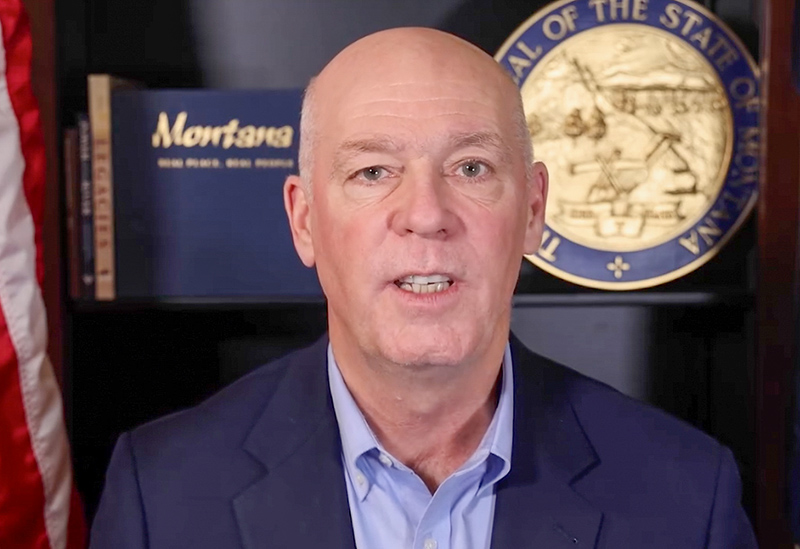Mother sues TSA for trying to subject her transgender daughter to a strip-search at the airport
A security official demanded 15-year-old Jamii Erway submit to a genital inspection after she triggered a "false positive" alert on a body scanner.

A transgender teenager’s mother has sued the Transportation Security Administration for strip-searching her daughter at an airport back in 2019.
Jamii Erway, who was 15 years old at the time the incident occurred, was ordered to submit to a strip-search at Raleigh-Durham International Airport after she registered a “false positive” on the body scanner at the security checkpoint, triggering an alert.
Erway explained to a scanner operator that she is transgender, but the scanner operator would not repeat the scan. The TSA official, referred to in the lawsuit as “Jane Doe,” told Erway she would have to have her genitals inspected in a private room.
According to the lawsuit, Doe told Erway she wouldn’t be allowed to leave the checkpoint or board a plane until she submitted to a search, which her lawyers argue violates TSA’s own policy, the Fourth Amendment, Erway’s rights under state law, and “the boundaries of civil and decent society.”
Fear over being strip-searched triggered Erway, leading her to experience “panic, anxiety, fear, racing heart, shortness of breath, uncontrollable shaking, and nausea,” according to the lawsuit. Due to Erway’s trauma, she and her mother, Kimberly, rented a car rather than flying, and drove 600 miles to Rochester, New York, where they were living at the time. The Erways have since relocated to Raleigh, reports ABC News.
Kimberly Erway has requested a jury trial, unspecified damages, and an injunction preventing TSA officials from subjecting other transgender people to similar strip-searches.
“Jamii would like to be able to fly again,” lawyers for the Erways wrote in the complaint, “and an order from the Court that would ensure that Jamii would never encounter the situation described would assist in reducing the recurring emotional distress that currently prevents her from doing so.”
On its website, the TSA advises transgender passengers that a security officer will press a button designating male or female “based on how you present yourself.”
“The machine has software that looks at the anatomy of men and women differently,” the TSA site says. “The equipment conducts a scan and indicates areas on the body warranting further inspection if necessary. If there is an alarm, TSA officers are trained to clear the alarm, not the individual. Additional screening is conducted to determine whether a prohibited item is present.”
Related: Lawsuit alleges TSA demanded transgender teen show her private parts in order to board plane
Unfortunately, many transgender passengers have encountered “false positive” results because, for example, agents may set the scanner to detect a woman, but the machine may find genitalia typically associated with men.
The Erways had previously filed a similar lawsuit in 2020. But that case was dismissed without prejudice — thereby allowing the Erways to file a subsequent lawsuit — due to technical reasons.
A TSA spokesman told ABC News that the agency does not comment on pending litigation.
According to the 2015 U.S. Transgender Survey, 43% of transgender respondents said that they had encountered at least one problem with airport security due to their gender identity. Of those problems, about 4% involved people being asked to lift up or take off their clothing, according to The Charlotte Observer.
A 2019 ProPublica report examined civil rights complaints filed against the TSA over a three-year period, finding that 5%, or 298 complaints, involved transgender passengers — a rate significantly higher than the percentage of the overall population that transgender people comprise.
Jonathan Corbett, a California-based attorney representing Erway, told the Observer in an email that Doe’s actions violated the TSA’s own policy.
“TSA policy at the time of the incident did not allow the screener to demand a child — or anyone else — to expose their genitals,” Corbett said. “This appears to be a failure of training and supervision, and we have no indication that they have improved since the incident.”
See also:
Transgender prisoner sues Virginia Department of Corrections over denial of surgery
Support Metro Weekly’s Journalism
These are challenging times for news organizations. And yet it’s crucial we stay active and provide vital resources and information to both our local readers and the world. So won’t you please take a moment and consider supporting Metro Weekly with a membership? For as little as $5 a month, you can help ensure Metro Weekly magazine and MetroWeekly.com remain free, viable resources as we provide the best, most diverse, culturally-resonant LGBTQ coverage in both the D.C. region and around the world. Memberships come with exclusive perks and discounts, your own personal digital delivery of each week’s magazine (and an archive), access to our Member's Lounge when it launches this fall, and exclusive members-only items like Metro Weekly Membership Mugs and Tote Bags! Check out all our membership levels here and please join us today!






















You must be logged in to post a comment.